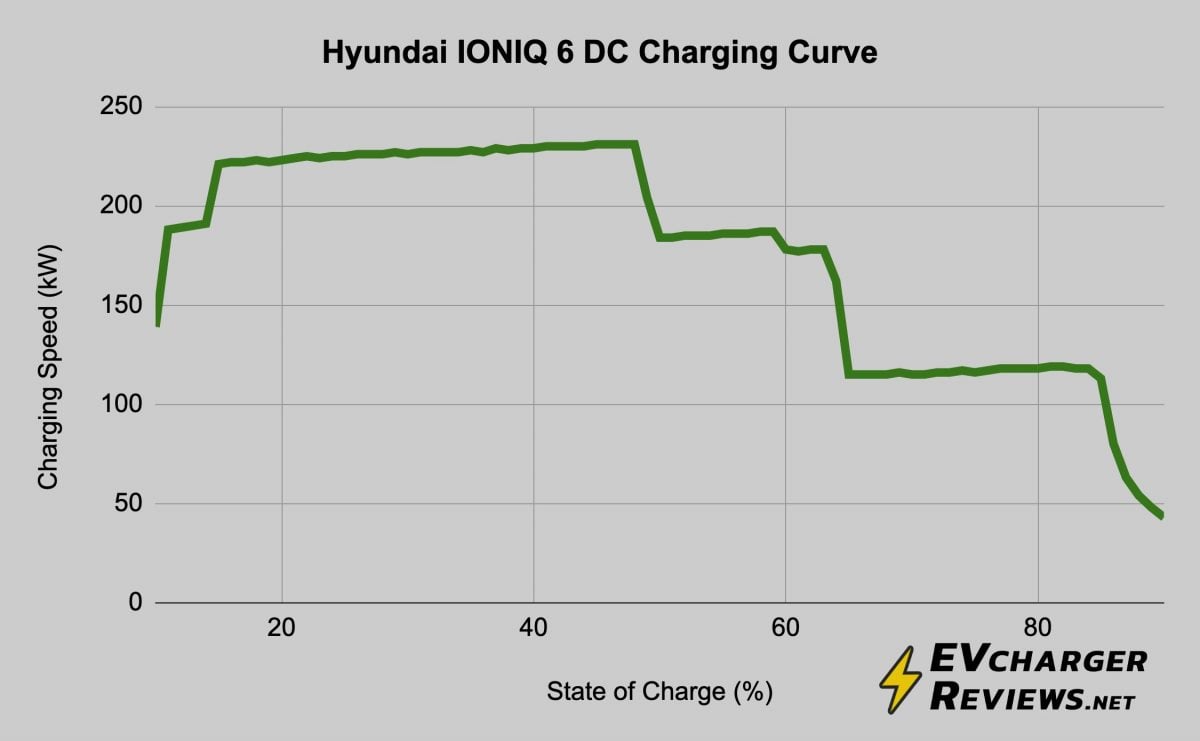EVchargerReviews is supported by our readers. We may earn commissions from links on this page. Why trust us?
Best Home EV Chargers for Hyundai Ioniq 6
Updated December 24, 2024, by Michael Kim
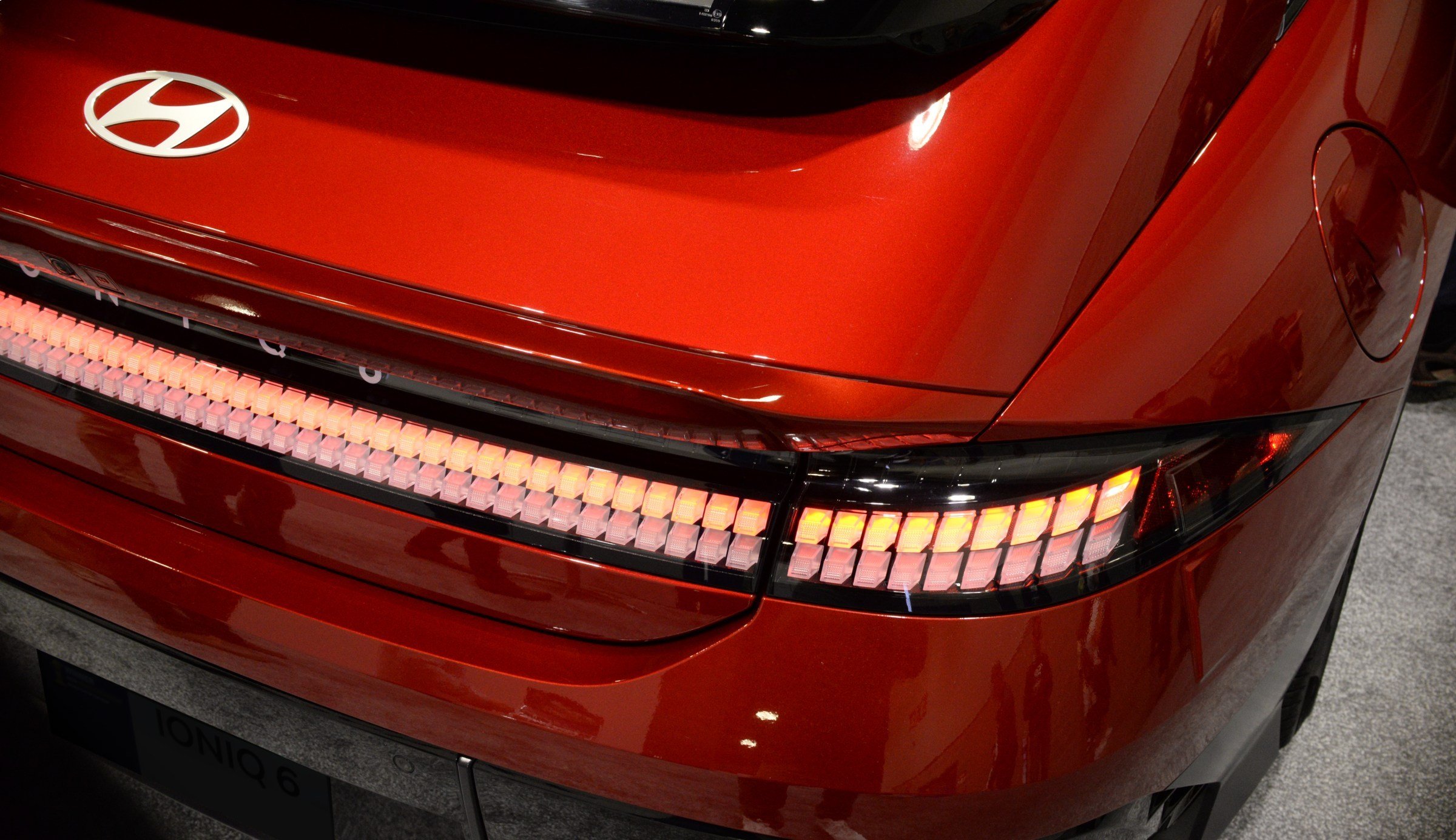
Our Top Picks for the Ioniq 6
The Ioniq 6 is the latest new EV from Hyundai in 2023. This fully electric compact EV shares its platform and 800-volt architecture with the popular Ioniq 5 crossover, but wears a sleek retro-inspired sedan body.
The Ioniq 6 is available in single-motor RWD and dual-motor AWD configurations, with an EPA-rated range between 240 and 361 miles, depending on trim level. The most basic Ioniq 6 comes with a 53 kWh capacity battery, while the larger option is a 77 kWh pack.
All versions of the Ioniq 6 charge using a standard J1772 / CCS combo connector. At home, the Ioniq 6 can accept up to 48 Amps (11 kW) from a Level 2 charging station over the J1772 connector. Below, we have selected our recommended home EV chargers for the Ioniq 6.
Why Trust US? We have hands-on testing experience with the most popular EV charging products.
IONIQ 6 Charging Fast Facts
| EV Charging Connector | J1772 / CCS |
| Battery Capacity | 53 – 77 kWh |
| Level 2 Charging Power | 11 kW |
| Level 2 Max Amps | 48 A |
| Level 2 [20-80%] Charge Time | 4 – 5 Hours |
| Level 3 Peak Power | 230 kW |
Tesla Universal Wall Connector (48 Amp)
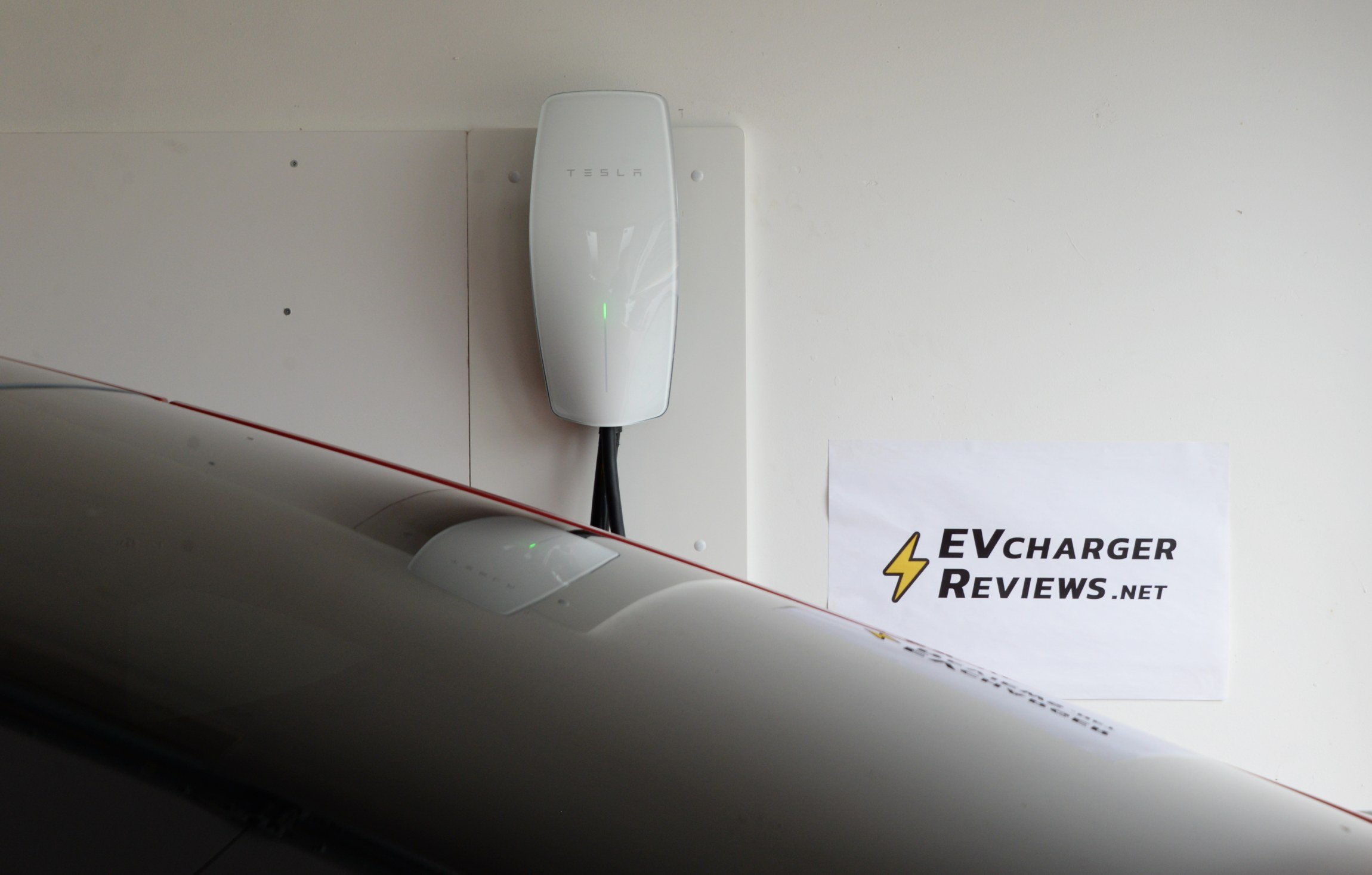
Tesla might sell more EV chargers than anyone because their cars are so popular. Their third generation Wall Connector product now comes in a Universal version that is compatible with both J1772 EVs (like the Ioniq 6) as well as NACS plus cars. With this charging station, you can charge any EV now and in the future.
The Universal Wall Connector can be configured and managed through the Tesla app and connects to your home Wi-Fi network. It’s got one of the best cords on the market, and we like Tesla’s approach to a side-mounted cord holster that gets the cord out of the way when not in use. This charging station can handle up to 48 amps but is configurable to lower modes. Our only reservation about the product is a NEMA 3R enclosure rating, so if it is installed outdoors, make sure it is covered from the elements.
Specs
- Amperage: Up to 48 amps
- EV Connector: NACS + J1772
- Home Connection: Hardwire
- Cord Length: 24 feet
- Cord Thickness: 15 mm
- Weatherproofing:
NEMA 3R - Networking: Wi-Fi
- App Control: Yes
- Warranty: 4 years
Pros
- Quality cord, easy to manage
- J1772 and NACS in connectors in one product
- Smart cord management
Cons
- Hardwire install only
- Plastic enclosure means only a NEMA 3R rating
FLO Home X5 (30 Amp)
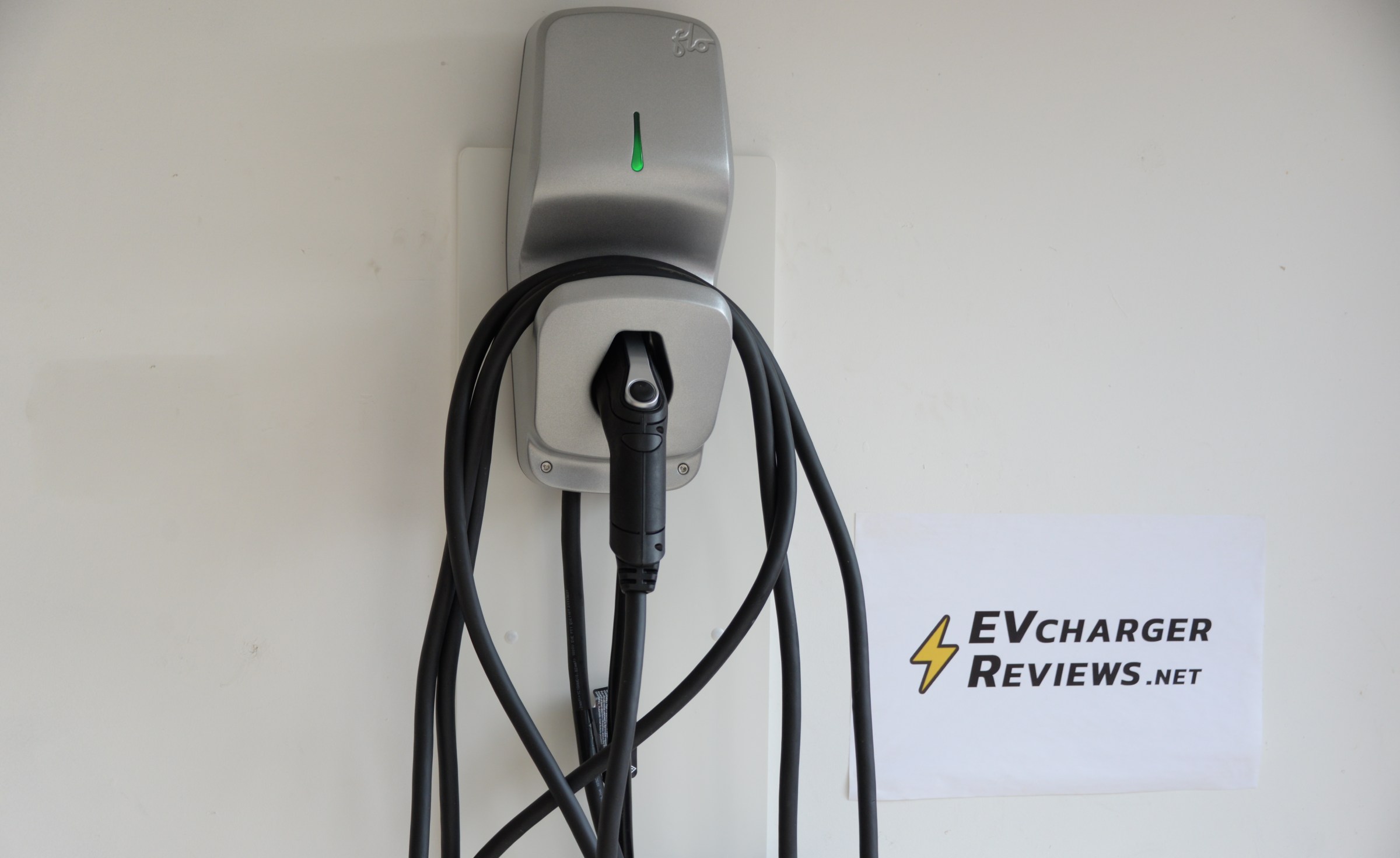
FLO is building and maintaining a commercial public charging network in North America. This shows in the durability and construction of their home charging products. The FLO Home X5 charging station is priced higher than competitors, but the weatherproof enclosure, pliable cord, and high-quality J1772 plug are a tier above the rest.
The Home X5 has powerline networking built in and comes with a receiving module for inside your home. In our testing, this connection was more reliable than Wifi.
The power output has a peak of 30 amps (7.2 kW), which is lower than competing products but more than enough to fully charge overnight. We think the FLO Home X5 is a good match for the hyper energy-efficient Ioniq 6.
Specs
- Amperage: Up to 30 amps
- EV Connector: J1772
- Home Connection: Hardwire
- Cord Length: 25 feet
- Cord Thickness: 17 mm
- Weatherproofing:
NEMA 4X - Networking: Powerline
- App Control: Yes
- Warranty: 5 years
Pros
- Extremely durable
- Excellent cord materials
- Reliable networking
- 5-year warranty
- Advanced scheduling features
- Good cord management
Cons
- No outlet option, must be hardwired professionally
- The app is well done but does not track home charging costs.
- 30 amps is on the lower end
ChargePoint Home Flex (50 Amp)
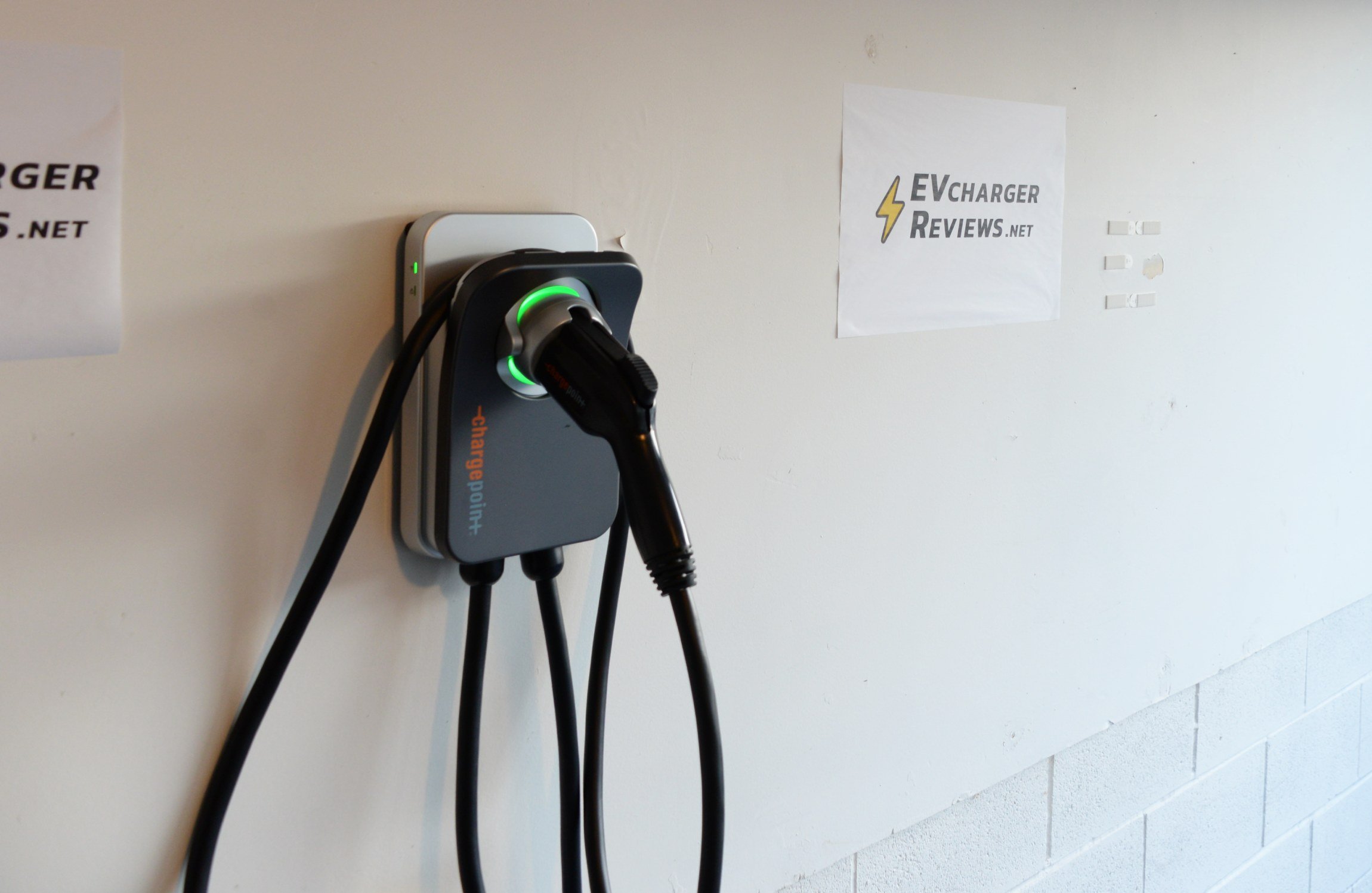
ChargePoint is best known for its public charging infrastructure, but they are no stranger to home EVSEs, they’ve been doing this for years. The Home Flex is another great product to consider because it can handle up to 50 amps in all conditions, thanks to a metal heatsink, and a cord that stays pliable in colder temperatures. We like the cord management system that allows the user to wrap the cord around the unit, and stow the J1772 connector in the swiveling holster.
Ioniq 6 drivers who frequent the ChargePoint public charging network will be happy to use a common mobile app for home and road trip charging.
Specs
- Amperage: Up to 50 amps
- EV Connector: J1772 or NACS
- Home Connection: NEMA 14-50, 6-50, or hardwire
- Cord Length: 23 feet
- Weatherproofing: NEMA 3R
- Networking: Wi-Fi + BT
- App Control: Yes
- Warranty: 3 years
Pros
- High-quality cord material
- Many plug-in installation options
- Alexa/Google Home integration
- EnergyStar certification
Cons
- Only one Home Flex can be paired to an account
- The product is heavily dependent on the app
ShockFlo G1 Portable (40 Amp)
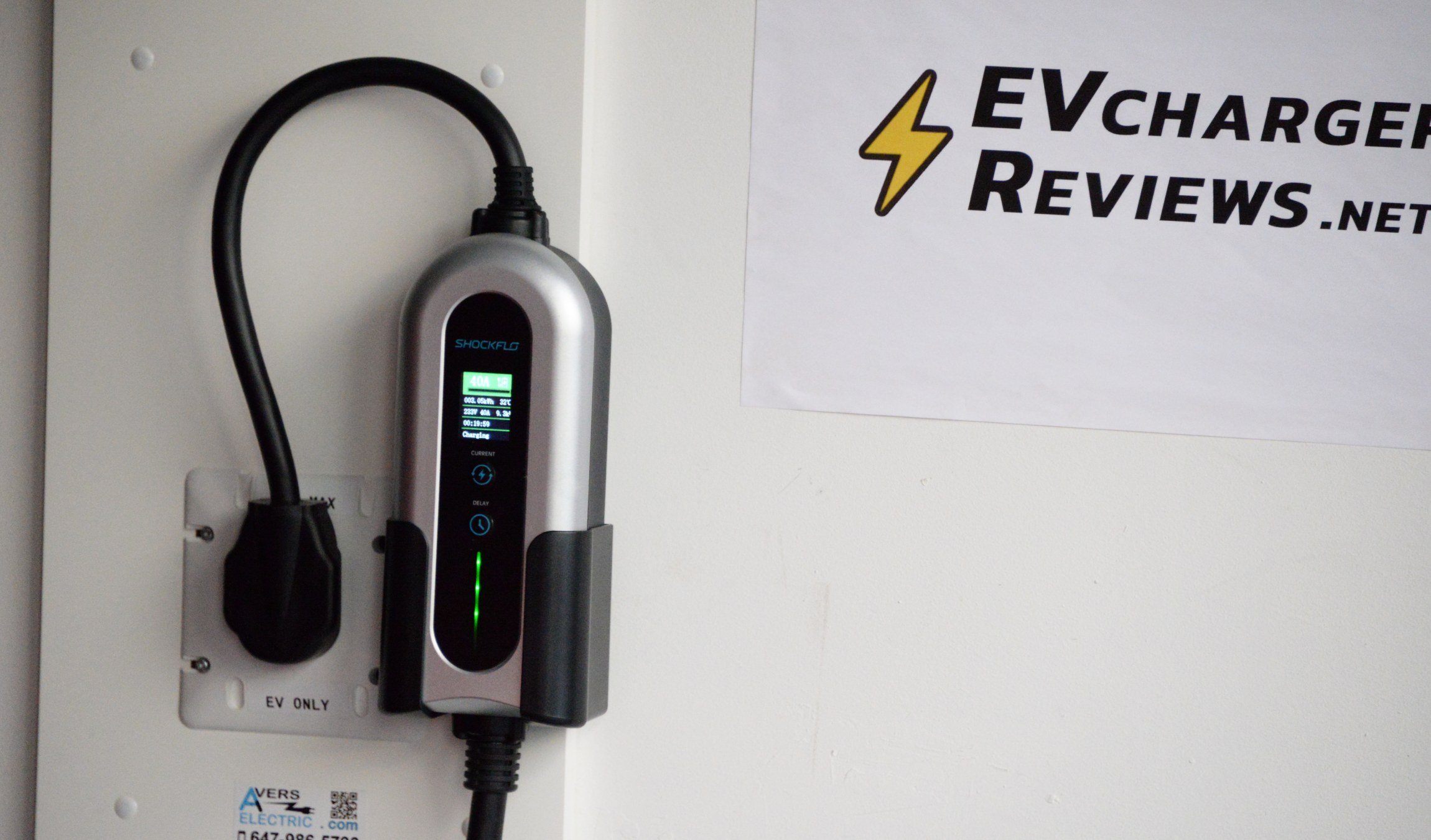
Need something you can occasionally take on the road? The G1 Portable EV charger from ShockFlo can deliver up to 40 amps from a NEMA 14-50 outlet and features an IP67 water resistance rating.
A built-in LCD screen shows real-time charging session stats about energy, power, voltage, and temperature. The G1 would be a good on-road companion for the Ioniq 6, and also includes a plastic wall mounting bracket for your home charging location (pictured).
Specs
- Amperage: Up to 40 amps
- EV Connector: J1772
- Home Connection: NEMA 14-50
- Cord Length: 20 feet
- Cord Thickness: 18.6 mm
- Weatherproofing:
IP67 - Networking: No
- App Control: No
- Warranty: 3 years
Pros
- Great power output at an affordable price
- More portable than wall-mounted chargers
- Always on display with charge stats
Cons
- Not suitable for outdoor operation in extreme climates
- It gets warm when charging at 40 amps but can be limited to lower output
Emporia Smart Level 2 EV Charger (48 Amp)
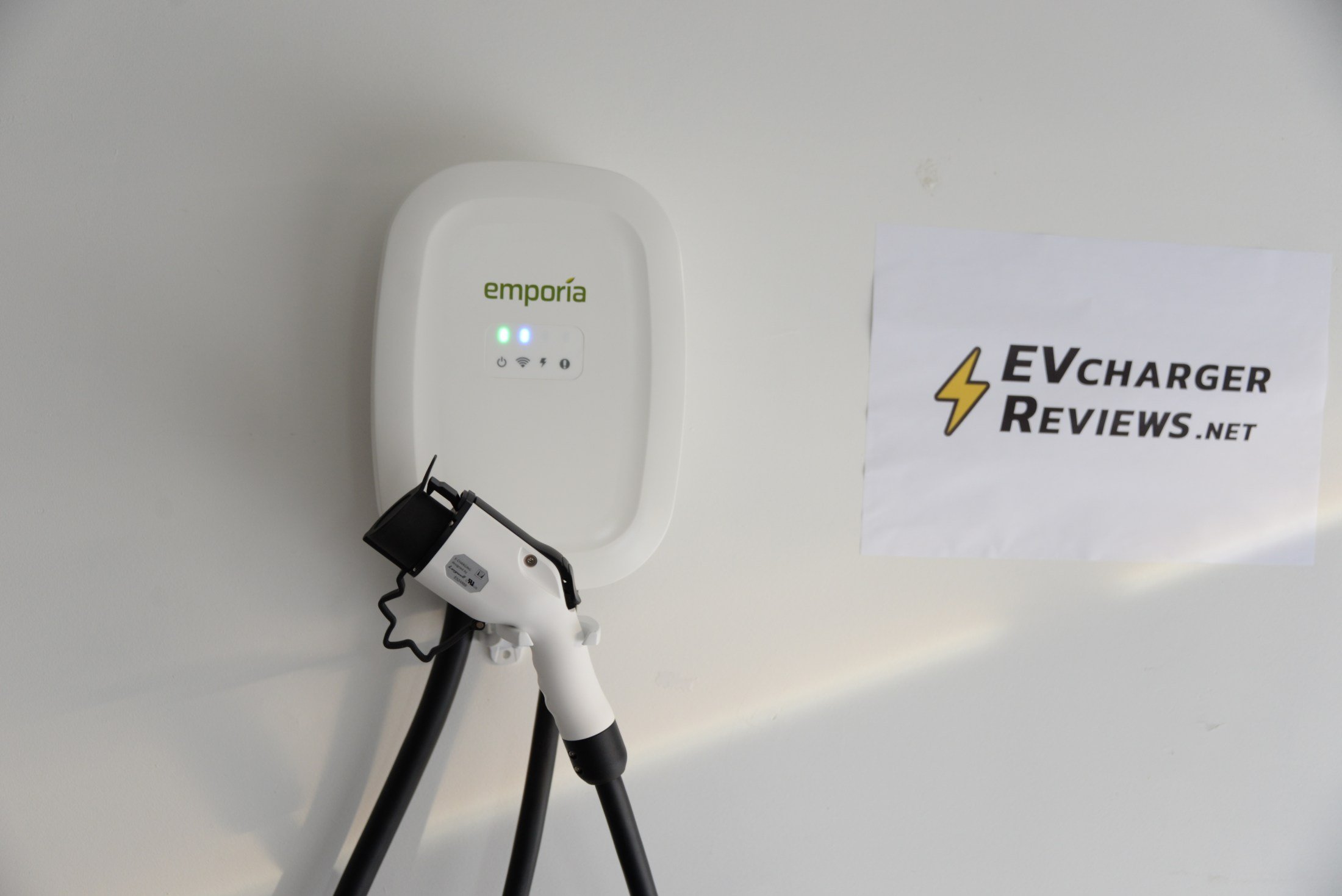
Emproa has one of the best budget-friendly 48-amp capable charging stations on the market. It also has the benefit of Empria’s larger ecosystem of home energy products. So if you’re interested in building out a smart home with connected switches and appliances, the Empria Charging station can be scheduled and managed from the same app.
The Emporia charging station can operate at 40 amps with a NEMA 14-50 outlet or can be hardwired (professionally) to operate at 48 amps. It was a solid performer in our tests, and we especially liked the metal cord holster and J1772 connector design.
Specs
- Amperage: Up to 48 amps
- EV Connector: J1772
- Home Connection: NEMA 14-50 or hardwire
- Cord Length: 24 feet
- Weatherproofing:
NEMA 4 - Networking: Yes
- App Control: Yes
- Warranty: 3 years
Pros
- Lower cost than competitors
- Emporia app connectivity and scheduling
- High-quality metal charge plug holder
Cons
- The charge cord is shorter than the competition
- The charger enclosure box is made from plastic
Frequently Asked Questions about charging the Ioniq 6
Can you charge the Ioniq 6 at a Tesla Supercharger?
Hyundai annoinced that free NACS-to-CCS adapters will be available to owers in Q1 2025, at which point the Ioniq 6 will be able to charge at 20,000 Superchargers in North America. Some Tesla Superchargers already allow non-Teslas to charge, but availability is limited. Those sites typically have a “magic dock” that combines NACS and CCS ports on the same cord. Check the official Supercharger map for local availability.
Keep in mind that the current generation of Superchagers is only capable of 400 volts, so 800 volt cars like the Ioniq 6 will charge slower than on 800-volt capable sites from Electrify America.
How far can the Ioniq 6 drive on one charge?
EPA-rated range is 240 miles for the RWD small battery variant, and 361 for the RWD extended battery pack version. AWD trims fall somewhere in between.
How much does it cost to charge an Ioniq 6 at home?
If we assume an off-peak electricity rate of 14 cents per kWh, then it would cost $11.34 to fully charge an Ioniq 6 at home with 95% efficiency.
How long does the Ioniq 6 take to charge at home?
It will take between 7 and 9 hours to fully recharge the Ioniq 5 at home with Level 2 charging. It will take between 4 and 5 hours to charge between 20% and 80% at 48 amps.
Where is the charging port located on the Hyundai Ioniq 6?
The charging port is located on the right side rear quarter panel, near the tail lights and wheel.
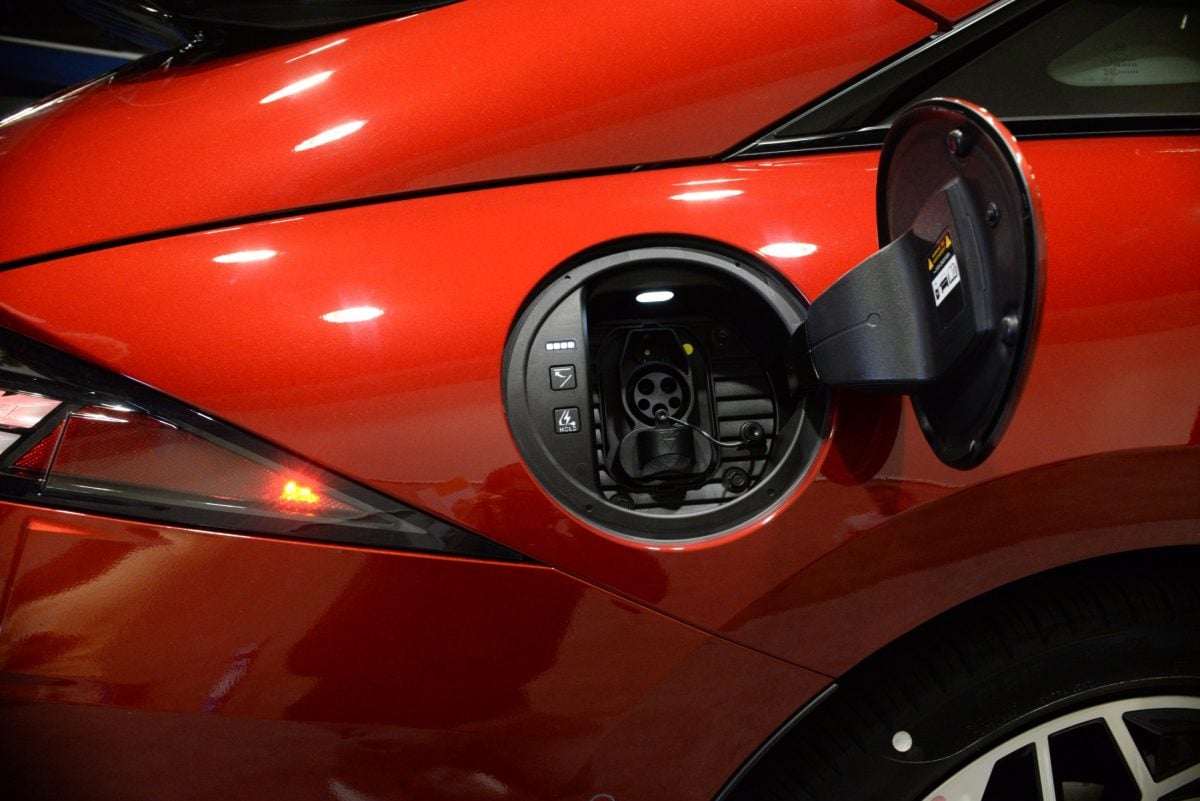
Does the Ioniq 6 have a battery heater?
A battery heater is standard equipment on cars with the larger 77 kWh battery, but it is not available on the standard range 53 kWh battery cars. Battery heating (preconditioning) helps the vehicle reach the peak charging speed on Level 3 fast chargers. In colder climates, charging without preconditioning the battery will be slower and take longer.
Why trust EVchargerReviews.net? The products we recommend are acquired and tested in our garage lab prior to making the cut.


